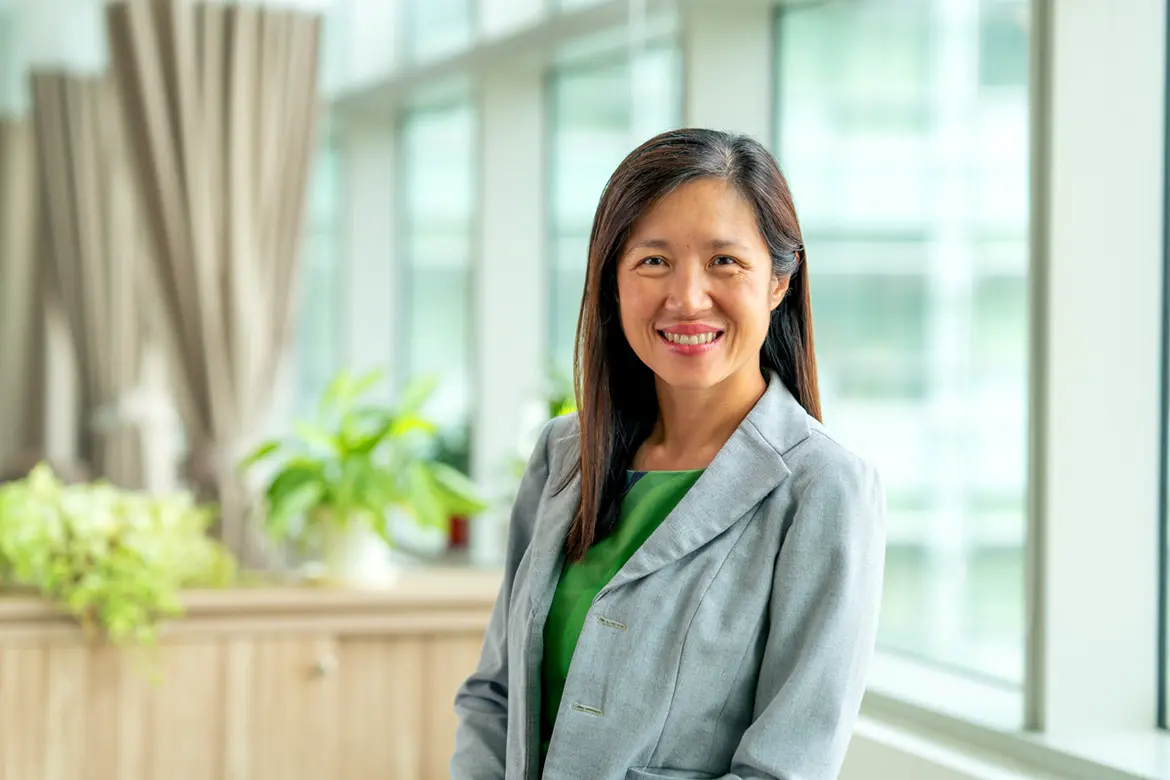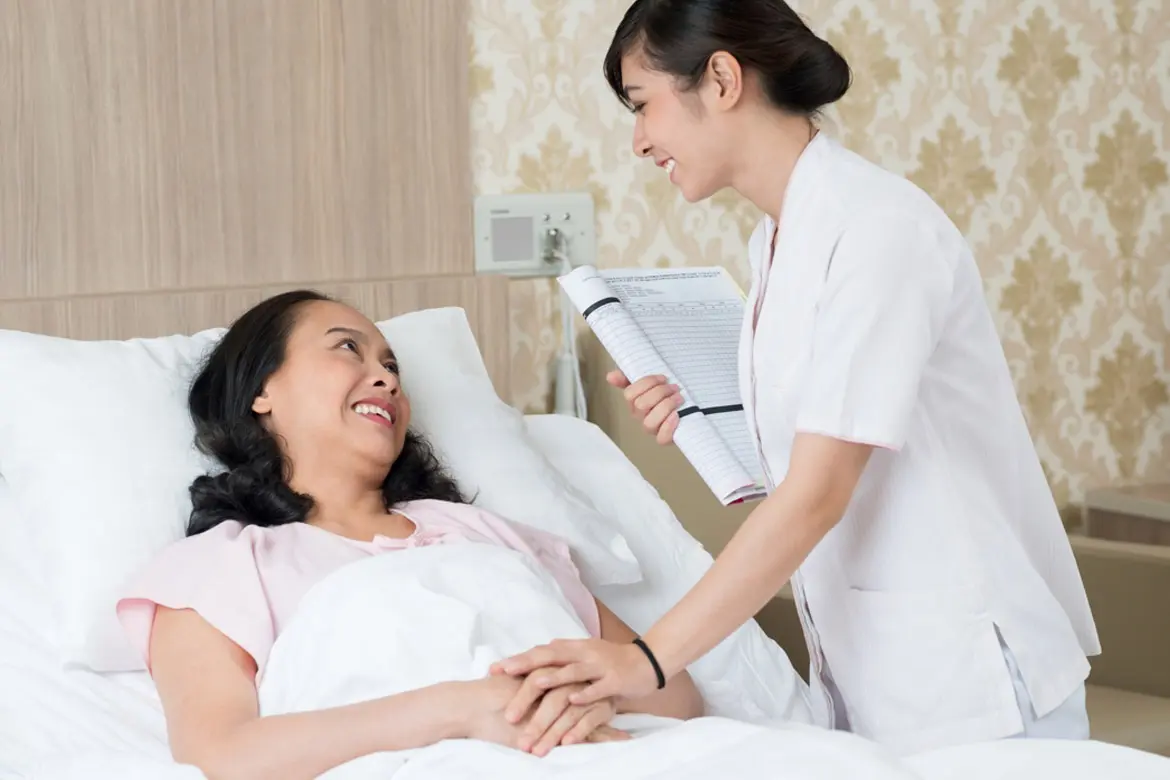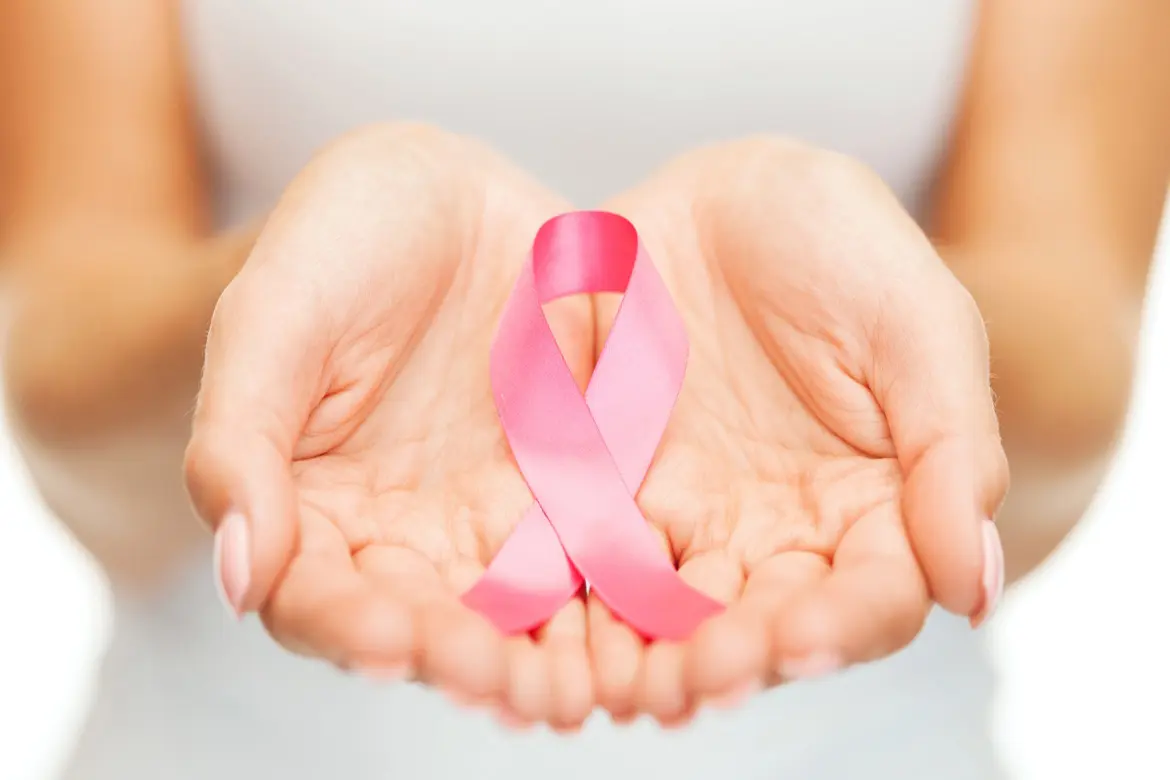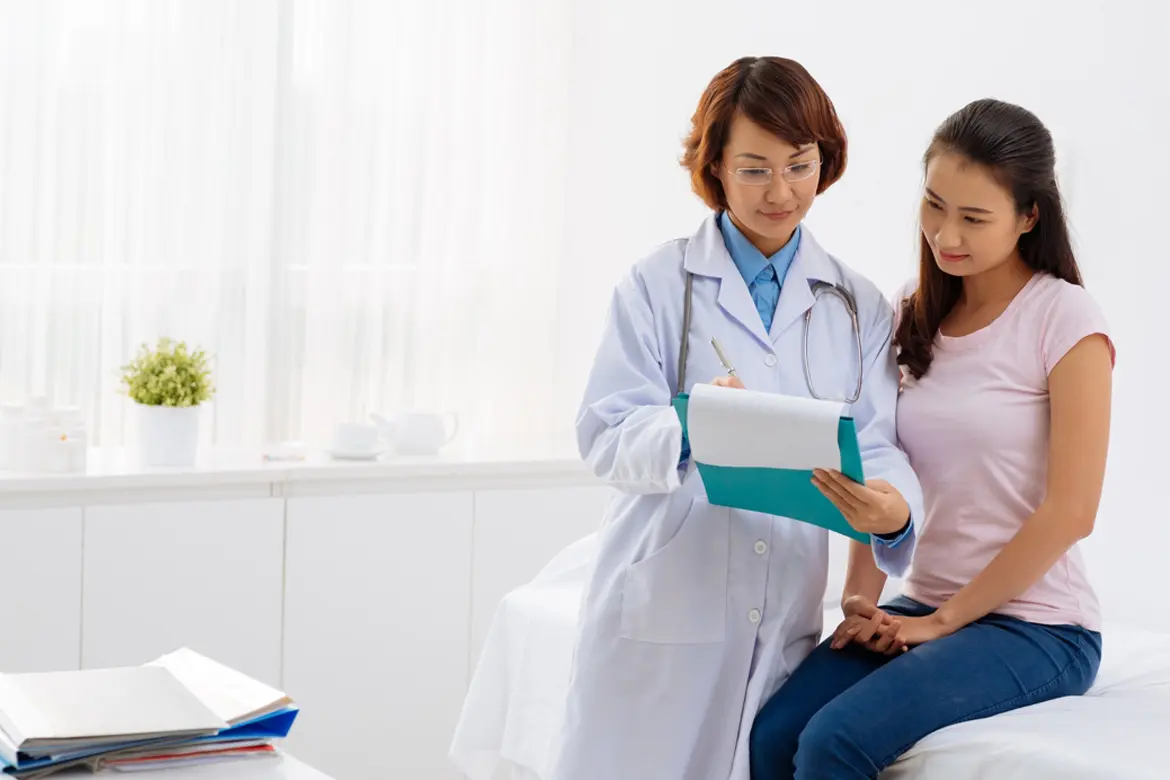Meet Dr Lynette Ngo, medical oncologist at Mount Elizabeth Hospitals in Singapore.
With more than 18 years of experience, Dr Ngo specialises in managing and treating breast and gynaecological cancers, including hereditary forms of the disease. She is also experienced in genetic counselling, psychosocial oncology, and palliative care.
She also serves as the medical director of the Mount Elizabeth Novena Centre for Genomic Health, where she works closely with the cancer genetics service team at the centre to provide cancer risk assessment and genetic testing for individuals at risk of hereditary cancers and other diseases.
What inspired you to become a medical oncologist and to specialise in women’s cancers?
My journey into medical oncology started in my early years working at a hospice in Singapore, where I was often told that palliative care was quite depressing.
However, I found myself deeply inspired by the patients there – through my interactions with them and learning their life stories. This experience sparked my interest in oncology, but I wanted to engage with patients beyond just the terminal phases of their lives; I wanted to help them from the start.
I’m glad I ended up focusing on women’s cancers because as a woman, I understand the multifaceted roles women play – mothers, sisters, daughters, career women – and the pressures these entail. This understanding helps me better relate to my patients, making it easier to manage their treatment plans and understand the potential implications of side effects they face.
You also serve as the medical director of the Mount Elizabeth Novena Centre for Genomic Health. Can you walk us through a typical day in your life in this role?
As I’m first and foremost a medical oncologist, my mornings usually involve visiting and assessing my patients who are hospitalised. I will then head to my clinic where I meet with outpatients, review their progress, and plan their ongoing treatments.
Later in the day, I collaborate with our genetic counselling team, which includes 3 dedicated counsellors, at the Mount Elizabeth Novena Centre for Genomic Health. We discuss various cases, focusing particularly on the more complex ones.
For challenging or more complex cases, I will usually bring it up to a multidisciplinary discussion board meeting that includes a broader team of genetic counsellors and oncologists. This allows us to delve deeper into the cases and explore more comprehensive treatment strategies.
Can you explain the differences between clinical-grade genetic testing and the ones people can order to their doorsteps?
These days, you can easily purchase direct-to-consumer genetic tests online or even in stores. However, these tests often lack clinical validation, which means they're not verified for accuracy and reliability by professional medical boards.
Some direct-to-consumer genetic tests also cover only a few genetic variations or focus on specific mutations. As a result, people may mistakenly believe they've undergone comprehensive genetic testing when they've actually only examined a small fraction of possible genetic mutations.
In contrast, clinical genetic testing is more comprehensive and customised to the individual. It looks at the patient's clinical history. So, for example, if a person has a very strong family history of breast cancer and colon cancer, we would ensure their test would cover all potential genetic mutations in those cancers.
A lot of direct-to-consumer tests are also considered 'recreational tests,' offering insights into traits like ancestry, personality, or how you might react to certain foods. While interesting, these tests don’t have a lot of supporting data or evidence, or correlate with disease or disease prevention.
Additionally, with these tests, patients are also often left to interpret and handle the results on their own.
At our Mount Elizabeth Novena Centre for Genomic Health, we have genetic counsellors available who can explain the results clearly and help patients develop a plan of action, such as preventive measures against cancer or other diseases.
Who is most recommended to undergo clinical genetic testing?
Clinical genetic testing is particularly recommended for individuals with a strong family history of cancer. If you have more than 2 close relatives who have had the same type or group of cancers, genetic testing can be very beneficial.
I would also recommend it for young cancer patients, particularly those under the age of 45. Most cancers typically occur in older adults, usually those aged 50 and above. Therefore, the development of cancer in someone younger suggests a possible genetic factor.
At our centre, we sometimes also receive walk-ins. These individuals come in because they are concerned about their family history of genetic conditions, or they have a sibling or relative who has been diagnosed with a gene mutation, so they want to learn more about their own genetic health.
How does your team of genetic doctors and counsellors approach a new case at the Mount Elizabeth Novena Centre for Genomic Health?
The process typically starts with the counsellor taking a comprehensive family history assessment, looking for any potential risk factors or indications for genetic mutations. If the individual is deemed a suitable candidate, they'll recommend genetic testing.
The patient then undergoes the genetic test. After receiving the results, the genetic counsellor reviews them with the patient. If the results are unclear, confusing, or show a positive genetic mutation, a meeting with a doctor is usually arranged.
At this point, I will step in to explain the implications of the results and collaborate with the patient on an action plan. This plan may involve determining the frequency of future testing and discussing potential medications or interventions.
What typically happens after the testing results come back positive for a genetic predisposition to cancer?
For instance, if a patient tests positive for the BRCA1 mutation, they are at an increased risk of developing breast and ovarian cancers.
In such cases, we recommend more frequent breast screenings. I usually suggest alternating between mammograms and breast ultrasounds with MRI breast scans to monitor their breast health comprehensively.
Regarding ovarian cancer risk, I will discuss the necessary tests with the patient, and they can opt to consult with a gynaecological surgeon. We facilitate these referrals as needed. Some patients prefer to start with regular screenings rather than immediate surgical consultations.
If an individual tests positive for a genetic mutation, we also offer to communicate with their family members about the potential risks. The family members can then schedule an appointment with a genetic counsellor to decide whether they want to undergo testing themselves. There is a 50% chance of inheriting most common genetic mutations.
What is a common misconception people have about clinical genetic testing?
One of the bigger concerns involves insurance. Some people worry that their genetic information might somehow reach insurance companies, leading to increased premiums or restricted coverage.
We try to reassure them that there are legal protections in place to safeguard their privacy. Their genetic test results are private and kept confidential. They are protected by the law, and no one should be able to use their genetic data against them.
Can clinical genetic testing be considered a ‘substitute’ for cancer screening?
They work in tandem but they are not the same thing.
Genetic testing looks for predisposition to a disease or condition, while cancer screening screens for existing conditions.
For instance, if we know that a particular gene mutation increases the risk for breast and ovary cancers in a patient, we want to make sure that when we do screening for that patient, we screen those cancers more comprehensively.
What's your most memorable patient story related to genetic testing?
I had a patient who initially consulted me for an unrelated condition, but during our conversation, she mentioned her father had breast cancer. It struck me that because male breast cancer is so rare and unusual, the chance of having a genetic mutation is very high.
Her father had passed away, and we discussed genetic testing. Despite her fears, she was eager to proceed. Fortunately, her results came back negative, and she was very relieved and happy.
She encouraged her sister to undergo testing as well, and it turned out her sister did carry the genetic mutation. We immediately referred her sister to a breast surgeon for screening, which revealed very early Stage 1 breast cancer. Thankfully, because it was detected so early, it was treatable, and she is now cured and well.
Her sister was so touched that she shared her story on social media to encourage women to consider screening and testing, because it can really save your life.
What do you find most rewarding about your work?
It's rewarding to see the positive impacts of our treatments, whether we're preventing cancer or treating it and observing good outcomes.
At Mount Elizabeth Novena Centre for Genomic Health, we discover that genetic testing serves not only a preventive role but can also aid in treatment. There are some medications that patients with genetic mutations are very sensitive to. When we prescribe those medications, they are effective for patients with those specific genetic mutations. When we prescribe these drugs, they can effectively treat cancers in patients who have these mutations.
So, when we discover a mutation, our approach isn't limited to just cancer prevention; we're also able to actively treat the cancer.
From your perspective, how important is genetic testing and its role in cancer prevention and improving one’s overall health?
Some people might wonder, "Why undergo genetic testing if it's all predetermined?"
The thing is – there are proactive measures we can take to prevent cancer. Even if your results show you do carry a gene mutation that predisposes you to cancer, knowing this early can help to detect potential issues before they develop into cancer.
Additionally, adopting a healthier lifestyle can also make a significant difference to your health. In fact, some of my patients with a mutation never actually develop cancer; they view their genetic predisposition as a wake-up call to enhance their lifestyle and pay closer attention to their bodies. It's not always a negative outcome.
I believe that understanding your predisposition to diseases, combined with going for regular screening, and adopting a healthy lifestyle, are vital components that can really improve your health and even potentially save your life.












